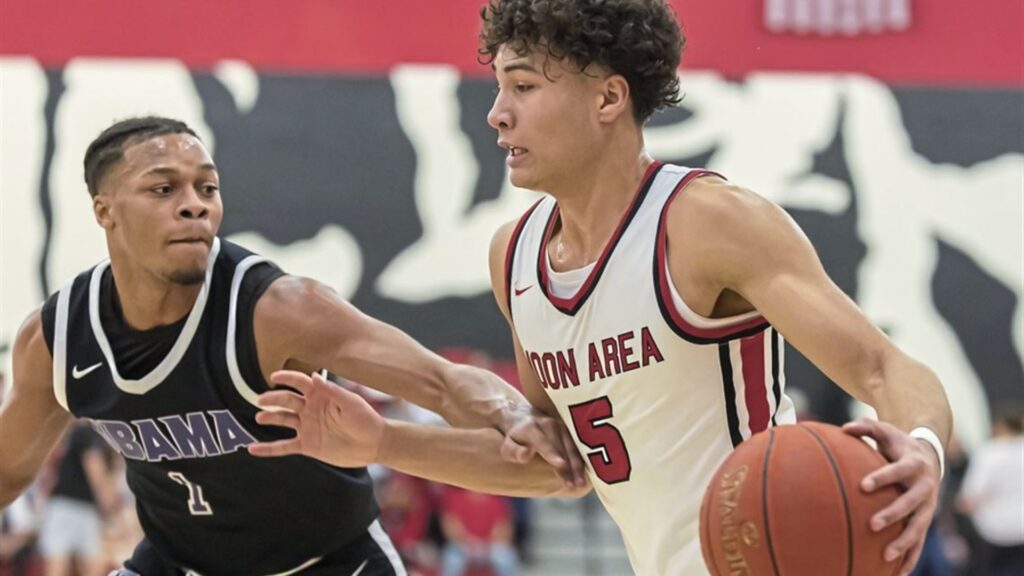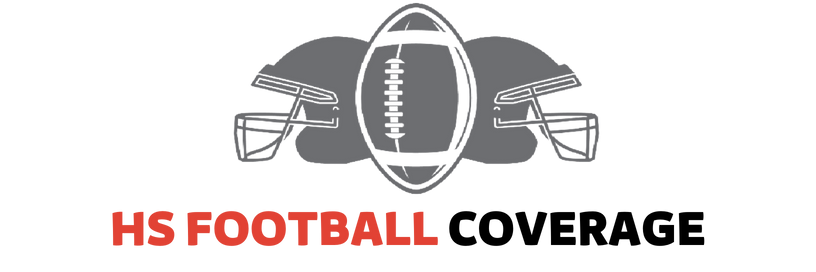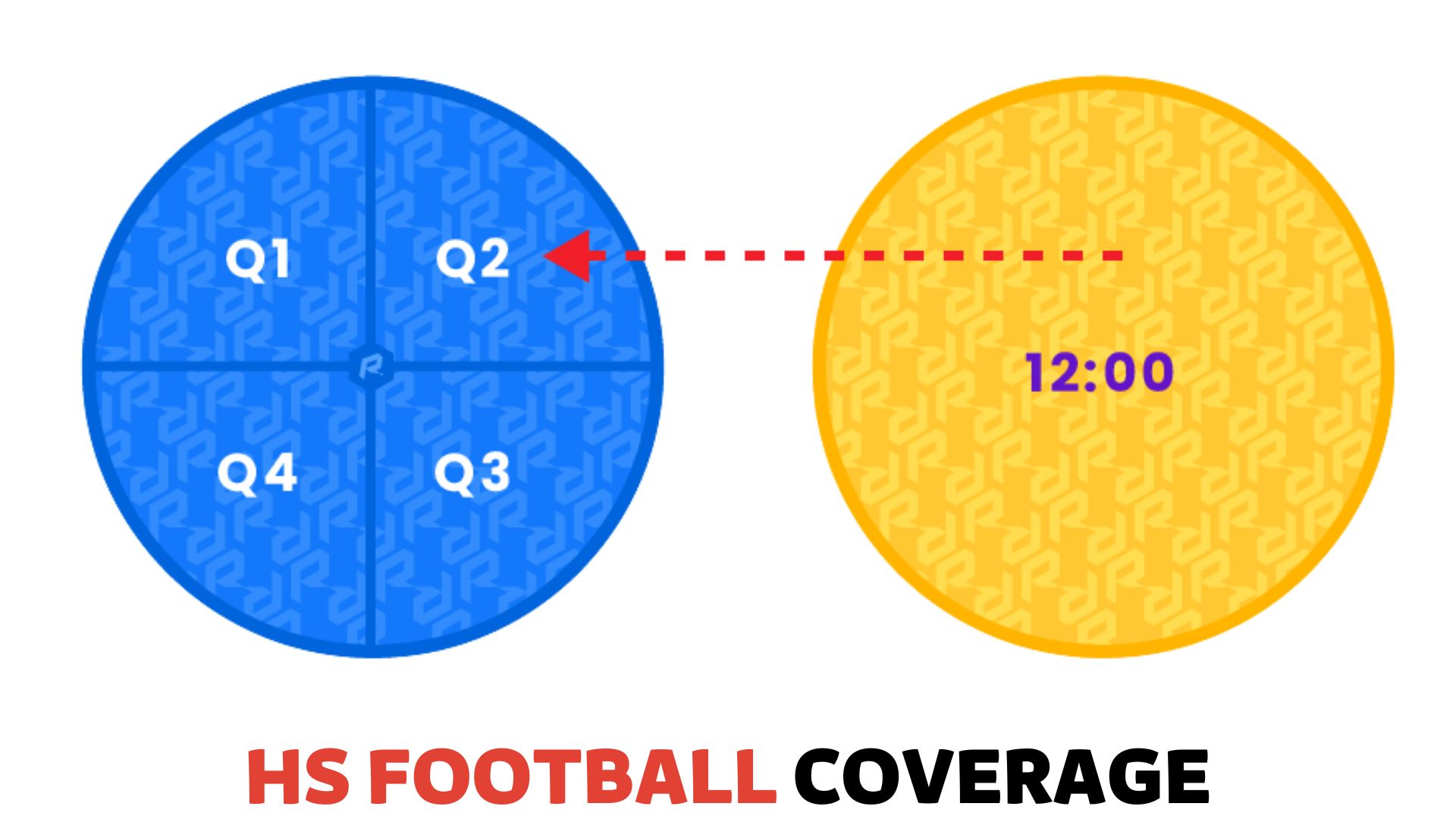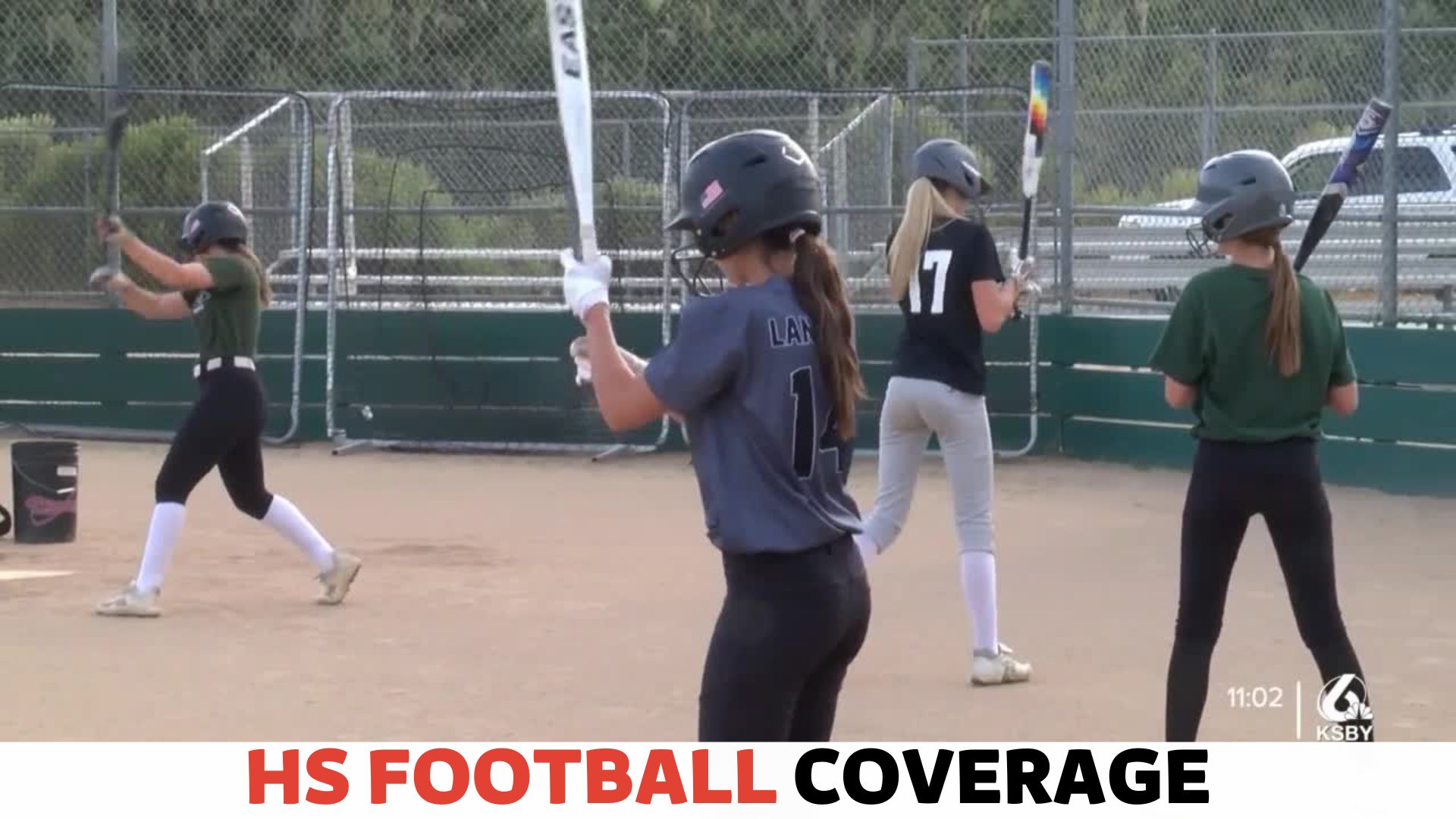
High school basketball typically starts in late fall, at the beginning of the academic year.
Understanding the High School Basketball Season Schedule

Regarding high school sports, basketball is often one of the most popular and exciting. Parents and students eagerly await the start of the high school basketball season each year, hoping to witness thrilling games and support their school teams.
But when does high school basketball start? Let’s dig deeper into the high school basketball season schedule to understand how it is organized and what key dates and milestones to look out for.
Length of the High School Basketball Season
The high school basketball season typically lasts several months, from late fall to early spring.
The exact start and end dates may vary depending on the region and state. On average, the season can last 10 to 14 weeks.
Key Dates and Milestones
Throughout the high school basketball season, there are several important dates and milestones that both players and fans should be aware of. These dates mark significant events and games that shape the season.
- Tryouts: Before the start of the season, aspiring basketball players must go through tryouts to earn their spot on the team roster. These tryouts often occur in the weeks leading up to the season’s official start.
- Regular Season Opener: The regular season starts with an exciting opener where teams from different schools compete against one another. This game sets the tone for the rest of the season and builds anticipation for what’s to come.
- Conference Play: After the regular season opener, teams enter into conference play, where they compete against other schools. These matchups play a crucial role in determining playoff seedings and standings.
- Playoffs: Towards the end of the season, the top-performing teams advance to the playoffs. The playoffs are an intense and thrilling stage where teams battle it out for a chance at the championship title.
- State Championships: The pinnacle of the high school basketball season is the state championships, where the best teams from each region compete for the ultimate prize. These championships are often held at a designated venue and draw substantial crowds.
Different Phases of the Season
The high school basketball season can typically be divided into three distinct phases:
- Preseason: This phase encompasses the time before the regular season begins, including tryouts, team practices, and scrimmages to prepare for competitive play.
- Regular Season: During the regular season, teams face off in scheduled games according to their region or conference. This is when the bulk of the season’s games are played.
- Postseason: The postseason consists of playoffs and championships, where the best teams compete in elimination rounds to determine the ultimate winner.
Understanding the high school basketball season schedule is essential for players, coaches, and fans. It allows them to plan and prepare for important events, cheer on their teams, and make the most of this thrilling time for high school basketball. So mark your calendars and get ready for an action-packed season!
Tryouts and Team Selection Process
Tryouts and team selection are essential steps in forming high school basketball teams. They play a crucial role in identifying talented players with the skills, commitment, and potential to represent the school on the court.
If you are an aspiring basketball player, understanding the importance of tryouts and the factors considered during the selection process can help you prepare effectively and stand out.
Importance of Tryouts for High School Basketball Teams
The tryouts serve as a platform for coaches to assess players’ abilities and potential. They allow them to evaluate each participant’s skills, athleticism, teamwork, and basketball IQ.
Through the tryouts, coaches can build a cohesive and competitive team representing the school with pride.
Factors Considered During the Selection Process
Coaches consider several factors to determine the final roster during the team selection process. These factors include:
- Basketball Skills: Coaches evaluate players’ shooting, dribbling, passing, rebounding, and defensive abilities. Demonstrating versatility in different aspects of the game can make you stand out.
- Athleticism: The athleticism exhibited by players, such as speed, agility, vertical leap, and endurance, is also assessed. Being in good physical shape and showcasing your athleticism can impress coaches.
- Teamwork: Basketball is a team sport, and coaches value players who can communicate effectively, understand their roles, and contribute to the overall success of the team. Showing good sportsmanship, supporting your teammates, and understanding the importance of teamwork can positively impact your chances.
- Attitude and Work Ethic: Coaches look for coachable, dedicated players with strong work ethics. A positive attitude, willingness to learn, and putting in extra effort during practices and games can distinguish you from other candidates.
- Character and Leadership: Demonstrating good character, leadership skills, and the ability to handle pressure situations with composure can leave a lasting impression on coaches.
Tips for Preparing and Standing Out During Tryouts
Preparing for basketball tryouts requires dedication, commitment, and a strategic approach. Here are some tips to help you stand out:
- Focus on Skill Development: Prioritize improving your basketball skills before tryouts. Dedicate time to practicing shooting, dribbling, passing, and defensive techniques to refine your abilities.
- Maintain Fitness: Engage in regular physical workouts to enhance your endurance, strength, and overall athleticism. Staying fit will enable you to perform at your best during tryouts.
- Study the Game: Develop a deep understanding of basketball strategies, rules, and game scenarios. Knowledge of the game can give you a competitive edge and allow you to make smart decisions on the court.
- Showcase Versatility: Try to excel in multiple areas of the game to demonstrate your versatility. Coaches appreciate players who can play multiple positions and contribute in various ways.
- Display Confidence: During tryouts, exhibit confidence in your abilities without being arrogant. Showcasing self-assurance in your skills and decision-making can make a positive impression.
- Communicate and Engage: Be vocal on the court, communicate with teammates, and actively participate in drills and scrimmages. This demonstrates leadership potential and engagement in the game.
- Stay Positive: Maintain a positive attitude throughout tryouts, even if you make mistakes or face challenges. Coaches look for players who can overcome setbacks and maintain composure.
- Give Your Best Effort: Give your best effort during tryouts. Coaches appreciate players who work hard, hustle, and give everything they have, regardless of the outcome.
Preparing for the Season
Preparing for the season is crucial for both players and coaches in high school basketball. The off-season is the perfect time to hone skills, build team chemistry, and get into top physical condition.
This section will discuss some important preparation aspects for the upcoming basketball season. Let’s dive in and explore key areas to focus on!
Physical Conditioning and Training
Physical conditioning plays a vital role in an athlete’s performance on the basketball court. Being in top physical shape lets players stay competitive and excel during games. Here are some areas to focus on during your off-season training:
- Strength training: Incorporate regular strength training exercises to build muscle, improve endurance, and prevent injuries.
- Cardiovascular exercises: Engage in running, cycling, or swimming to enhance stamina and cardiovascular health.
- Speed and agility drills: To enhance overall speed and agility, practice quick movements, changes of direction, and footwork.
- Flexibility and mobility exercises: Stretching and mobility drills help prevent injuries and improve range of motion.
Skill Development and Practice Sessions
Developing basketball skills is a continuous process that requires consistent practice. During the off-season, players should focus on individual skill development to enhance their overall game. Here are some areas to work on:
- Shooting technique: Practice shooting from different court spots, focusing on mid-range and three-point shots.
- Ball handling: Improve dribbling skills by incorporating various drills and exercises to enhance ball control and hand-eye coordination.
- Defensive drills: Work on defensive techniques such as positioning, footwork, and staying low to become a strong defender.
- Rebounding: Practice rebounding techniques, including boxing out opponents and securing rebounds.
Strategies for Building Team Chemistry
Building team chemistry is essential for creating a strong and united basketball team. A team that works well together on and off the court can achieve great success. Here are some strategies to foster team chemistry:
- Team building activities: Organize team-building exercises and outings to help players develop trust and camaraderie.
- Effective communication: Encourage open and honest communication among team members on and off the court.
- Group drills and scrimmages: Engage in drills and scrimmages that emphasize teamwork and collaboration.
- Supportive and positive environment: Create an environment where teammates support and uplift each other, fostering a sense of unity.
Focusing on physical conditioning, skill development, and team chemistry can help high school basketball players maximize their potential and set themselves up for a successful season. So, lace up your sneakers and prepare to make this season your best!
Game Schedule and Competitions
Basketball enthusiasts eagerly await the start of the high school basketball season, which brings together talented players and passionate fans.
The game schedule and competitions are crucial in this highly anticipated event. From regular season games and tournaments to conference and division matchups, as well as the playoff structure and championship games, there is plenty of basketball action to look forward to.
Regular Season Games and Tournaments
The regular season games serve as the foundation for high school basketball teams, allowing them to showcase their skills and build momentum throughout the season.
These games are typically scheduled between various schools in the league. The schedule may vary, but teams generally face off against home and away opponents, allowing them to compete against different playing styles and strategies.
In addition to regular season games, tournaments add an extra level of excitement. These events often feature multiple teams from different schools and can last several days.
Tournaments not only allow teams to compete against new opponents but also allow players to showcase their talents to scouts and college recruiters who may be in attendance.
Conference and Division Matchups
High school basketball teams are typically divided into conferences and divisions based on various factors such as geographical location and school size.
Conference matchups focus on games between teams within the same conference. These games are crucial as they contribute to a team’s conference record, determining their seeding and standing.
Division matchups bring teams from different conferences together within the same division. These games offer a chance for teams to test their skills against unfamiliar opponents, presenting unique challenges and opportunities for growth.
Division matchups often generate heightened excitement as teams strive to establish dominance within their division.
Playoff Structure and Championship Games
As the regular season ends, teams enter the exhilarating playoff phase. The playoff structure can vary depending on the league and region, but it generally involves teams competing in a series of elimination games to determine the finalists.
The intensity and pressure of the playoffs add an extra layer of excitement as teams battle it out for a chance to play in the championship games.
The championship games represent the pinnacle of high school basketball. It culminates the entire season’s efforts as teams compete for the ultimate prize.
These games usually draw large crowds of passionate fans, creating a vibrant atmosphere that adds to the thrill of the competition.
The championship games showcase the best of high school basketball, highlighting the players’ talent, teamwork, and determination.
Overall, the game schedule and competitions in high school basketball are filled with excitement, opportunities for growth, and memorable moments.
Whether it’s regular season games, thrilling tournaments, conference and division matchups, or the intense playoff structure leading to championship games, high school basketball never fails to captivate players and fans alike.
Off-season Activities and Growth Opportunities
Embark on off-season activities to maximize growth opportunities and prepare for the start of high school basketball. Enhance skills, build team chemistry, and improve overall performance during the break.
High school basketball is not just a seasonal sport but a year-round commitment for dedicated players looking to improve their skills and reach their full potential.
The off-season plays a crucial role in developing players’ abilities and providing growth opportunities.
It is a time when athletes can focus on honing their skills, building strength, and gaining a competitive edge.
This section will explore the various off-season activities and growth opportunities that high school basketball players can use for their development and success.
Summer Leagues and Camps
Summer leagues and camps are fantastic opportunities for high school basketball players to continue their training during the off-season.
These programs offer organized games and coaching led by experienced professionals. Participating in a summer league allows players to stay sharp, improve their skills, and compete against other talented athletes.
Summer camps, on the other hand, provide a more immersive experience with concentrated training sessions, skill-specific drills, and scrimmages.
These activities help players refine their technique, enhance their basketball IQ, and develop valuable teamwork and leadership skills.
Participating in summer leagues and camps allows players to keep their playing abilities at peak performance and be ready for the upcoming season.
Aau Basketball and Showcase Events
Another excellent off-season activity for high school basketball players is participating in AAU (Amateur Athletic Union) basketball and attending showcase events.
AAU basketball is known for its highly competitive nature and attracts talented players from various regions.
Playing in AAU tournaments provides an opportunity to face top-level competition, improve game strategies, and showcase skills in front of college scouts and coaches.
In addition to AAU, showcase events offer a platform for players to showcase their talents and abilities.
These events often include skill challenges, individual workouts, and exposure to college recruiters.
By participating in AAU basketball and attending showcase events, players can gain valuable exposure, network with coaches, and potentially attract scholarship offers for college basketball opportunities.
Balancing Off-season Training With Rest and Recovery
While engaging in off-season activities for skills development is crucial, it is equally important to balance training with proper rest and recovery.
High school basketball is physically demanding, and players must allow their bodies and minds to recharge to prevent injuries and maintain longevity in the sport.
Incorporating rest days into the off-season training schedule helps players avoid burnout and enables their bodies to recover from intense workouts.
Focusing on injury prevention exercises, flexibility training, and proper nutrition is essential to promote overall fitness and well-being.
Players can maximize their performance potential by striking a balance between training and rest while minimizing the risk of fatigue and injuries.
In conclusion, the off-season is a critical time for high school basketball players to engage in various activities that promote growth and skill development.
Summer leagues, camps, AAU basketball, showcase events, and proper rest and recovery contribute to players’ overall progress.
By actively participating in these growth opportunities and balancing training and rest, high school basketball players can optimize their abilities and increase their chances of success in the upcoming season.
Conclusion
High school basketball typically starts in the late fall, around November or December. Gearing up for the new season is exciting for athletes, coaches, and fans.
Whether you’re a player hoping to make the team or a supporter eager to cheer on your favorite school, prepare for an action-packed and thrilling experience on the basketball court.
Don’t miss out on the opportunity to witness the passion and dedication of high school basketball players as they showcase their skills and compete for victory.















